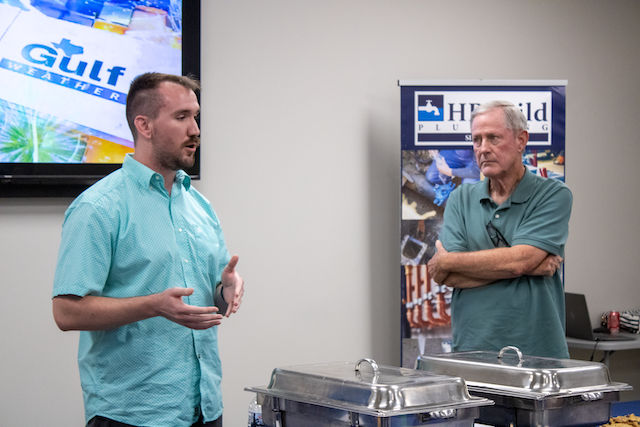STEPHEN HEMELT — Even good parents are susceptible to Forgotten Baby Syndrome
Published 12:04 am Saturday, August 8, 2020
|
Getting your Trinity Audio player ready...
|
Four Texas children between 2 and 4 years old have died this year in hot-car deaths, according to kidsandcars.com.
The advocacy agency focuses attention on numerous child/vehicle fatality tragedies through education and public awareness campaigns.
Their charge is to propose federal policy change and work toward the redesign of motor vehicles to make them safer for children to reduce or eliminate predictable and preventable causes of injury and death.
As a teenager and young adult, I never gave a second thought to these hot-car, unattended child deaths other than to think the parents were criminally forgetful, at best, or wholly uncaring and sinister at worst.
Yet, my time as a professional journalist and subsequent experiences as a parent opened my eyes to the bigger picture surrounding these tragedies.
Many take place within loving and attentive families, where just a single oversight caused the ultimate worst-case result.
I’m no longer interested in seeing the book thrown at every mother or father suffering through the Hell on Earth that follows the death of a child. But rather, I’m interested in promoting awareness to what is a common but preventable parental nightmare.
Recently shared with Port Arthur Newsmedia from Elepho, Inc. was a breakdown of Forgotten Baby Syndrome.
Most parents assume they would never accidentally forget their child in a car. Unfortunately, even the most loving parents have experienced near misses or even painful tragedies due to Forgotten Baby Syndrome — a medical term that explains how a parent can walk away from a car without realizing their child remains inside. The stories are heartbreaking and can happen to anyone at any time. There are a few contributing factors of which parents should be aware:
- Each day, people perform tasks that become routine, which means very little conscious thought goes into them. Your motor memory is in charge, and therefore, allows you to think of other things while you drive – dinner plans, grocery list, etc. When this happens, you might drive home and go inside as usual, completely forgetting your child is in the backseat.
- People can become easily distracted. Because of this increase in multitasking, even the best parents can leave home on a stressful day and end up forgetting their baby.
- Answering phone calls in the car while you’re driving is a huge distraction. It’s easy to forget or accidentally ignore what is around you when you’re giving all of your attention to a phone conversation, texting or browsing social media.
A former coworker and fellow parent once told me she would place her purse in the backseat next to the child’s seat whenever her children were in the car with her. This action forced her to go to the backseat at each stop and always placed her face-to-face with her most precious cargo.
Another idea is eClip, a device that attaches inside a car to help remind parents to remove their baby from the car seat.
Using low-energy Bluetooth, eClip can detect when you walk more than 25 feet from your car by alerting you through an interactive app on your Smartphone. The eClip also monitors the temperature in the back of your car to keep it safe and comfortable for your baby.
More information on the product is available at elepho.com/eclip.
Placing the car seat in the middle of the backseat if your vehicle allows you to do so helps keep your child in sight at all times.
And always go on extra alert if your routine changes. While you should remain alert during driving, it can be easy to zone out when your drive is repetitive. If you are not the normal driver for the babies and young children, know that it’s your routine change that must stress safety first.
Stephen Hemelt is the president of Port Arthur Newsmedia. He can be reached at stephen.hemelt@panews.com or 409-721-2445.






